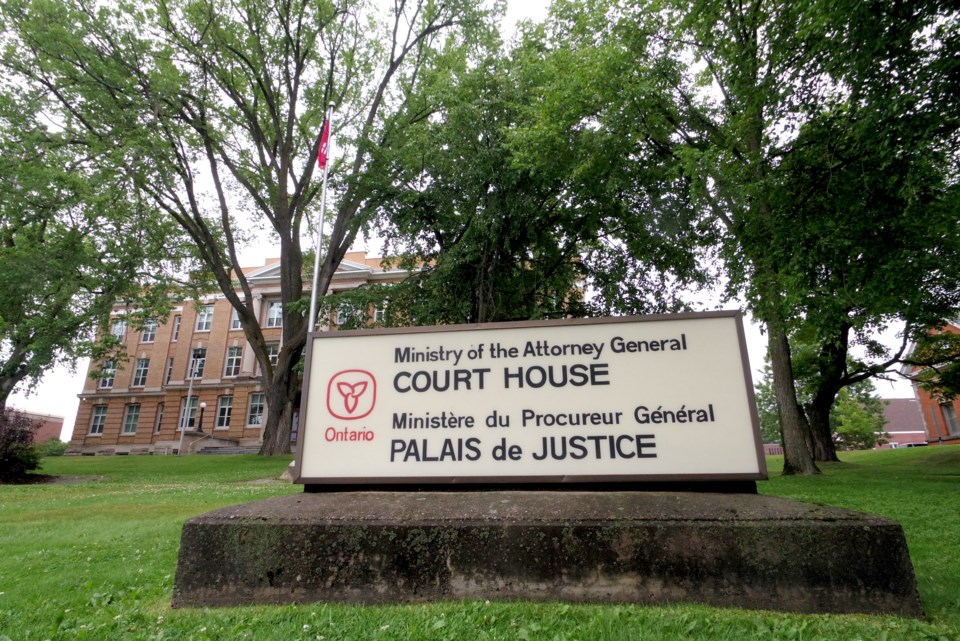Anthony Barzan was acquitted of the charges in the Ontario Court of Justice where a judge ruled that city police had violated a number of his Charter rights.
The Crown appealed the decision to a higher court, which heard the case in March of this year.
On July 26, Superior Court Justice Annalisa Rasaiah allowed the appeal and ordered the matter returned to the Ontario Court on Aug. 9 to set a date for a new trial.
Barzan was charged after a Sept. 8, 2018 single-vehicle crash, where his pickup truck ended up on its side in a three-foot deep ditch on Allen's Side Road, north of Third Line West.
In a voir dire, during his 2019 trial, Ontario Court Justice Romuald Kwolek found there had been multiple "serious" Charter breaches.
Kwolek excluded the results of breath tests and roadside screening device "fail" evidence, and acquitted Barzan of operating a vehicle with a blood-alcohol level exceeding 80 milligrams of alcohol in 100 millimetres of blood.
During the voir dire — a trial within a trial to determine the admissibility of evidence — the court heard city police arrived at the crash scene about 11:39 p.m., one or two minutes before paramedics.
Const. Jacob Rouse saw the truck in the ditch with the driver sitting nearby on the shoulder of the road.
He testified that during his initial interaction with Barzan he had noted the strong odour of alcohol on the man's breath.
"Almost immediately" after speaking with the accused, he said he had formed a reasonable suspicion that Barzan had alcohol in his body, but intentionally delayed making a breath demand until Barzan was checked by EMS.
Paramedics spent 15 minutes assessing Barzan, who told them he was wearing his seat belt, the air bag had deployed and he had attempted to swerve to avoid hitting a deer.
Rouse told the court he overheard Barzan admit to drinking, re-affirming his suspicion that the driver had alcohol in his body.
After Barzan indicated he didn't wish to go to the hospital for any further medical attention, Rouse immediately detained him and read him a breath demand at 11:57 p.m.
Barzan registered a fail at 11:59 p.m., was cautioned, given his rights to counsel and then transported to the police station.
Kwolek agreed with defence lawyer Wayne Chorney's submissions that his client's rights to be secure against unreasonable search, seizure and arbitrary detention, to be advised for the reason of his detention and to retain and instruct counsel without delay were breached.
In his reasons, Kwolek said Rouse's decision to delay making the roadside demand wasn't reasonable in the circumstances.
Rasaiah noted in her 10-page decision that all circumstances must be considered, from the time the reasonable suspicion is formed to making the demand to the detainee's response.
While there must be no delay beyond what is reasonably necessary to enable the officer to discharge his or her duties when making a demand, "in unusual circumstances a more flexible interpretation may be given," she said.
It is reasonable to conclude from the trial judge's reasons that he considered Barzan's detention occurred "at the very moment" the officer formed his grounds to make the demand (11:40 p.m.) and thought that's when Rouse should have done it.
This was not a random stop, but a situation where police were called to an accident scene with a vehicle on its side in a ditch, Rasaiah said.
"The officer had experienced accident scenes in which an involved party appeared to be medically sound only to take a turn."
The Superior Court justice said she agreed with Crown Leonard Kim that the trial judge erred in determining Barzan was detained without thoroughly considering the issue of whether or not the accused was actually detained in determining the validity of the demand.
"This was a contextual element that should have formed part of the analysis."
Rasaiah said the failure to consider the layer of detention constitutes a fatal error in the legal analysis and findings in the contextual circumstances in this case.
There is a reasonable degree of certainty that the acquittal at trial was materially affected by error, she concluded.
